|
In This Issue...
- President's Message
- The EBCR Committee: Hard at Work!
- ANCDS Clinical Spotlight: Michael Biel, CScD, CCC-SLP, BC-ANCDS
- ANCDS Member Spotlight: Dr. Mary Purdy
- ANCDS Student Fellow Spotlight: Hasini Weerathunge
- In Memoriam
- Update Your Member Profile
- Board Certification Mentoring
- ANCDS Education & Standards Committee Updates
- ASHA Announcements
- Aphasia Resources
- Upcoming Conferences
- Member Accomplishments
ANCDS Board/Officers
Lynn Maher, Ph.D., CCC-SLP
President
Heather Clark, Ph.D., BC-ANCDS
President-Elect
Deanna Britton, Ph.D., CCC-SLP, BC-ANCDS
Secretary
Neila Donovan, Ph.D., CCC‐SLP
Treasurer
Carole Roth, Ph.D., BC-ANCDS
Immediate Past President
Jessica Galgano, Ph.D., CCC‐SLP
Executive Board Member
Ellyn Riley, Ph.D., CCC-SLP
Executive Board Member
Ana Rivera Rodriguez, Ph.D., CCC-SLP
Executive Board Member
Victoria Scharp, Ph.D.
Executive Board Member
Mary H. Purdy, Ph.D., BC-ANCDS
ANCDS Archivist
Kim Eichhorn, M.S., CCC-SLP, ATP, BC-ANCDS
Chair, Board of Clinical Certification
Janet Patterson, Ph.D., CCC-SLP
Chair, Board of Residency Education
Sheryle Hazard, CAE
Executive Director
ANCDS Board Certification
Why become Board Certified?
- Recognizes your advanced clinical knowledge and skills
- Enhances your confidence in your clinical knowledge and skills
- Enhances consumer and referral source confidence in the care you can provide
- Encourages professional growth through the continuing education required for the maintenance of board certification
- Provides a respected credential to support professional advancement
Click here to learn more about the application and certification process.
Members-Only Webinar Archive
ANCDS members have access to view past webinar recordings (no longer available for ASHA CEU credits) at your convenience.
ANCDS Student Fellowship Awards
ANCDS will offer awards for 12 students to attend the 2023 ANCDS Annual Scientific Meeting. The application deadline is Friday, June 16, 2023, at 5 pm ET.
View all criteria here.
New Right Hemisphere Resources
New resources related to apragmatism have been added to the RightHemisphere.org website, including a video presentation by the International Right Hemisphere Collaborative introducing pragmatism.
Welcome New Members!
Full Members
Christina Barnes, SLP.D, CCC-SLP
Emily Cummings, M.S., CCC-SLP
Alyssa Dillard, M.S., CCC-SLP, CBIS
An Dinh, Ph.D.
Jenya Iuzzini-Seigel, Ph.D., CCC-SLP
Patricia Liu, CCC-SLP
Christine Luzuriaga, M.S., CCC-SLP
Kaitlyn Roush Kara Simon-Kuhn, M.S., CCC-SLP
Student Members
Brandi BeCoats, M.S., CCC-SLP
Hannah Griffey, M.S., CCC-SLP
Kristen Henry
Katherine Wolf, M.S., CF-SLP
Contact Us
ANCDS
2345 Rice Street
Suite 220
St. Paul, MN 55113
Online: www.ancds.org
Email: [email protected]
Phone: 651-925-5528
Fax: 651-317-8048
Have feedback or suggestions for the newsletter? Contact us here!
|
President's Message
Dear ANCDS Members,
I hope this newsletter finds you feeling well, productive, and fulfilled in your mission to support and improve the lives of those with neurologic communication disorders. I have to say that, though I have been a member of ANCDS almost since its inception, I have not fully understood the myriad of ways our members contribute to our mission until serving in this position as President. These efforts intentionally address a range of issues, from the education of professionals, future professionals, and scholars, to establishing best practices in service delivery and disseminating research innovations, all being done by highly talented and committed volunteers in the context of ANCDS committees. The annual goals of each committee are very ambitious, and their work is impressively self-driven. It is truly a privilege to work with the members of the Executive Board, the Committee Chairs, the Board Chairs, and the many committee members who — once again — volunteer their precious time and persistent effort to support the mission of ANCDS.
While there may be many reasons one chooses to volunteer, from making connections with others who share the same passion and intellectual curiosity to giving back to the profession and “paying it forward,” it goes without saying that many of us are in work environments in which this kind of service is unrewarded or under-recognized. However, this does not seem to deter the small army of volunteers that makes up the ANCDS team, nor does it keep them from giving their utmost to their charges, and we are all the beneficiaries of their service. Let me share a few updates from these busy ANCDS committees.
Members of the Executive Board (EB) held the first-ever virtual “ANCDS Membership Information Session” in February. Thank you to those of you who were able to attend. We discussed details about our two certification programs: the Board of Clinical Certification, which oversees the credentialling of individuals with specialization in neurologic communication disorders, and the Board of Residency Education, which oversees the accreditation of advanced clinical education programs in neurologic communication disorders. The EB is planning another information session for later this summer. If there is an area of the organization that you are interested in hearing more about, please let me know so we can include it in the meeting. Our goal is to make ANCDS activities more accessible to the membership.
The Education and Standards Committee, under the direction of Louise Keegan, Ph.D., CCC-SLP, BC-ANCDS, has a busy agenda for this year’s activities. In addition to the three webinars and two podcasts planned for this year, the ANCDS 2023 Scientific Meeting is scheduled for Wednesday, November 15, in Boston. The theme of the meeting is: Supporting Mental Health in Neurogenic Communication Disorders. More details about the speakers and the agenda will be forthcoming but mark your calendars now so you can attend.
The Communications Committee, under the leadership of Adele Raade, Ph.D., BC-ANCDS, CCC-SLP, continues to expand ANCDS’ social media presence and facilitate awareness of ANCDS activities and the accomplishments of ANCDS members through this newsletter. Toward that end, the Communications Committee is seeking a volunteer to join the committee to lead the ANCDS social media team. The ideal candidate would be an active social media user, and interested in working closely with a small team to coordinate posts that meet organizational guidelines for quality control. Please note that content generation for social media posts is distributed across the organization. The primary role of the social media point person will be to assemble content and maintain our brand across multiple social media platforms. If you are interested or know of someone who might be a good fit for this position, please contact me, Adele Raade, or Tori Scharp, the EB liaison to the committee. Our contact information can be found in the ANCDS Member Directory.
The Membership Committee, under the direction of Miriam Carroll-Alfano, Ph.D., CCC-SLP, would love for you to update your profile in the member directory! Now is the perfect time to update your listing and profile photo. The more detail you provide, the easier it will be to find you with various search terms. Speaking of searching, thanks to our patient staff at ADS, I have finally learned how to search the member directory efficiently, which I feel compelled to share with you. The most reliable way to find a member in the directory from any page on the website is to hover over the “Resources” bar at the top of the page, select "member directory", type in the person’s name, then hit search at the bottom of the page. If you want to return to the full directory, you can do so by selecting that same search tab without entering any other information. Please don’t ask me what I was doing to search for a member’s contact information before I learned this! I am just sharing this in case there are any other technologically challenged members out there. After you update your profile, get ready to respond to the membership survey the Membership Committee has prepared. Our aim is not to take up too much of your time but to make sure we have good information about your characteristics, work setting, and interests so we may serve you better. We appreciate your help.
There is so much more I could share, and I will continue to report on our activities in the next newsletter. In closing, I want to reiterate that the strength of ANCDS resides in its membership. Our past accomplishments and future successes are dependent upon our member volunteers. If you are one of our past or present volunteers, thank you for your contribution and service. If you would like to volunteer, please let us know, either by emailing me directly, selecting the “Volunteer” link on the Member front page, or using the “contact us” quick link on the ANCDS website. One last request, if you know someone who is not a member of ANCDS but who is also like-minded and committed to the mission of “Enhancing the communicative lives of people affected by neurologic disorders,” please take a moment to forward this newsletter to them and let them know about us.
“There is power in numbers and there is power in unity.” - Dr. Martin Luther King, Jr.
Warm regards,
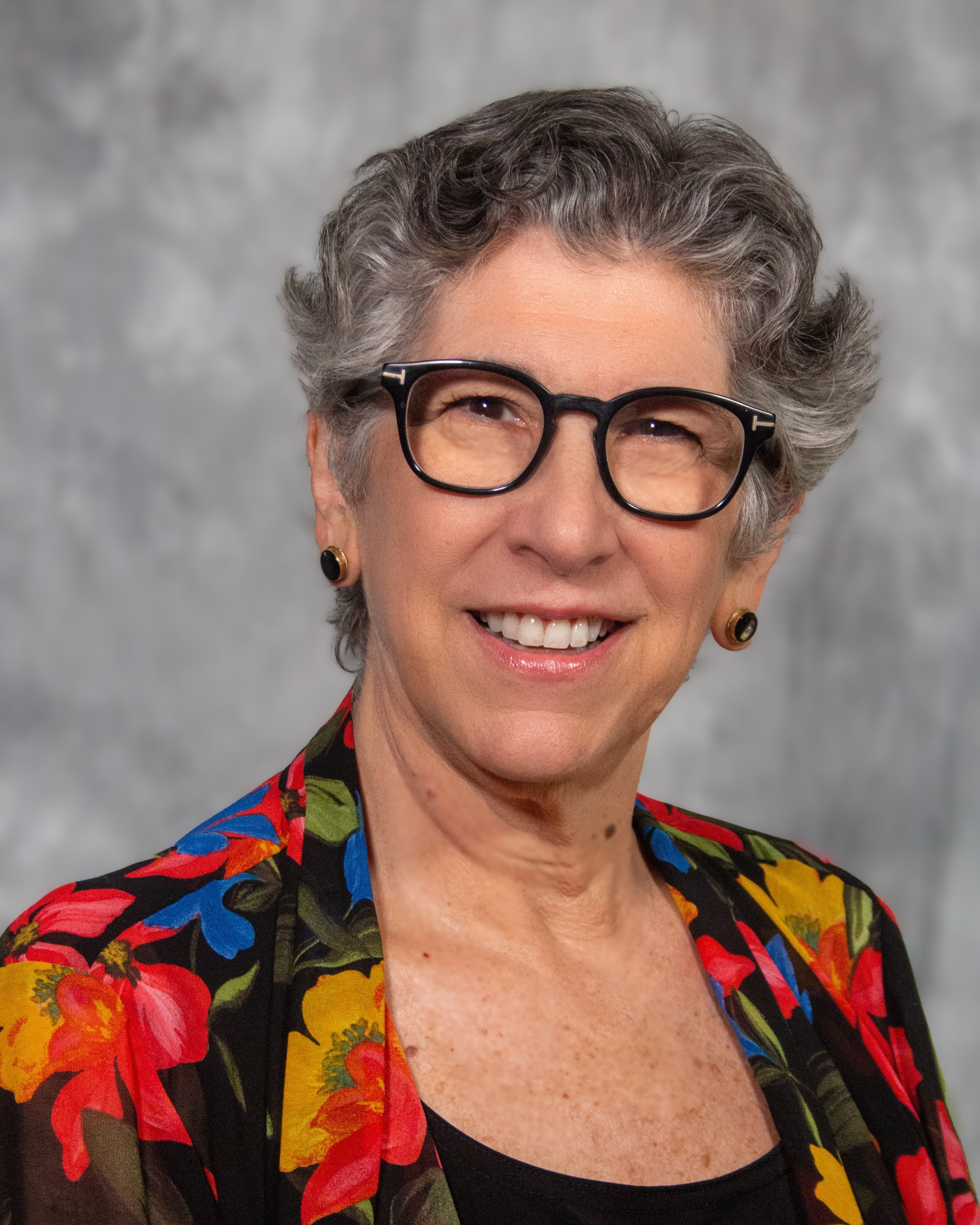
Lynn M. Maher, Ph.D., CCC-SLP
ANCDS President
[email protected]
The EBCR Committee: Hard at Work!
JoAnn Silkes, Ph.D., CCC-SLP
Chair, Evidence-Based Clinical Research Committee
The Evidence-Based Clinical Research (EBCR) Committee has been hard at work! If you’re not familiar with the EBCR Committee, our focus is on integrating and synthesizing the literature on neurogenic communication disorders to make it easily accessible to clinicians and/or identify areas in which further research is needed. This work generally takes the form of systematic reviews, meta-analyses, and scoping reviews that are then published in various journals.
We currently have 8 writing groups: Aphasia, Apraxia, Motor Speech Disorders, Pediatric Motor Speech Disorders, Diverse Populations, TBI, Right Hemisphere Disorders, and Progressive Neurological Disorders. Each writing group comprises 1-2 leaders with expertise in the topic and teams of 4-7 members. Teams include researchers, clinicians, and students. These groups first identify an area that needs investigation, then spend months — or years — identifying, gathering, reviewing, analyzing, and interpreting the literature before writing for publication. I encourage you to explore the ANCDS-Authored Reviews list that is available on the ANCDS website.
ANCDS Clinical Spotlight: Michael Biel, CScD, CCC-SLP, BC-ANCDS
The Aphasia Book Club of Echo Park — near downtown Los Angeles — was formed in 2014. My wife, Francie Schwarz, is a librarian at the Los Angeles Public Library, and we thought it would be interesting to combine our skills to create a book club for persons with aphasia. Early on, we contacted local aphasia support groups inviting people to be part of a planning committee. We attracted a group of diverse people, many with long histories of making their living in the arts. Out of this planning committee, we formed our main goal: to create a stimulating and supportive book club where we could read and discuss a wide range of adult fiction and non-fiction. Over the years, we have become more diverse in the types of literature we read. In addition to books, we have spent considerable time reading short stories, plays, and poetry. Some of our best discussions have come from reading poetry. This led our members to want to learn more. So far, we have hosted three 8-week poetry writing workshops taught by the well-known Los Angeles poet Brendan Constantine.
(Continue Reading)
ANCDS Member Spotlight: Dr. Mary Purdy
Name: Mary H. Purdy, Ph.D., BC-ANCDS
Organization: Southern Connecticut State University (Professor Emeritus)
We love featuring our members and their clinical and research interests, but we also enjoy learning more about our members’ interests outside of the profession! Read about ANCDS Archivist Mary Purdy’s passion for the national parks, and find out how many she’s visited! If you are (or know of) a member with a unique interest or hobby, email us at [email protected] for a chance to be featured in an upcoming newsletter. 1. Why did you decide to travel to the national parks?
I love nature and hiking! My first visit to a national park was in high school, when our band took a bus from Evergreen Park, IL, to Rocky Mountain National Park in Colorado. I’ll never forget when I got my first glimpse of the mountains — they were absolutely amazing, and I was hooked. I sporadically visited a few more parks with my husband after college, but I didn’t begin to get serious about traveling to all the parks until we had kids. I wanted them to have the opportunity to see the beauty of the country. In 2010, we visited 7 parks in 3 weeks. I’ve been ticking them off regularly since then.
ANCDS Student Fellow Spotlight: Hasini Weerathunge
Name: Hasini Weerathunge
Earned Degree(s): Bachelor of Science in Electronic and Telecommunication Engineering, University of Moratuwa, Sri Lanka; Master of Science in Biomedical Engineering, Boston University, USA
Program of study/Year in program: Doctor of Philosophy in Biomedical Engineering, Boston University, 5th year
Mentor/Advisor: Dr. Cara Stepp
University: Boston University
ANCDS Fellowship Mentor: Dr. Lynda Feenaughty
Area(s) of research, teaching, and/or clinical interest: Motor Speech Disorders, Fluency Disorders, Voice disorders
|
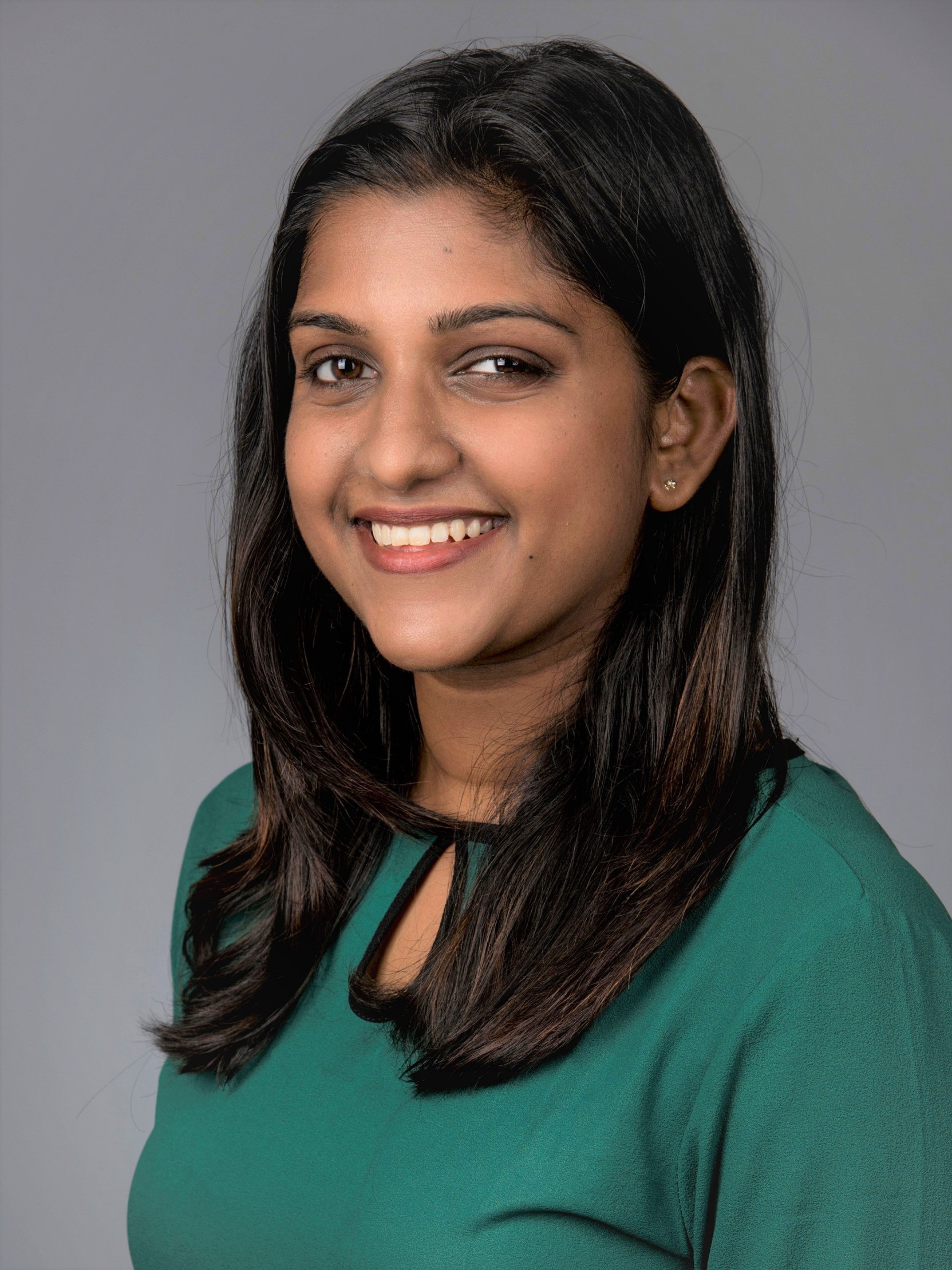
|
1. Why were you interested in the ANCDS conference fellow program?
I strongly believe that understanding the mechanisms of communication disorders from a neurological perspective can lead to enhanced and informed therapeutics as well as robust objective measures for voice and speech symptoms. My dissertation work is focused on investigating the effects of auditory and somatosensory feedback in laryngeal and articulatory motor control in speakers with Parkinson’s disease (PD). The ANCDS Student Fellowship is a key factor in enhancing my network of researchers and resources in neurologic communication disorders and sciences to achieve my doctoral and career goals. It provides me with the opportunity to get the guidance of mentors specialized in Neurological Disorders to focus my career goals as a clinical investigator.
In Memoriam: Dr. Marilyn Newhoff
|
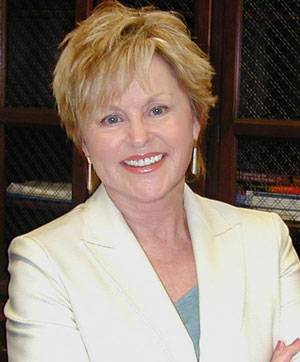
Dr. Marilyn Newhoff
|
It is with deep sorrow that we are writing to let you know of the death of our dear friend and colleague, Dr. Marilyn Newhoff. As most of you know, she was a founding member of ANCDS and a major contributor to the Clinical Aphasiology Conference for over 40 years. All of us who knew her will forever remember her as a person of quick wit and brilliant intellect, of outstanding academic contributions, organizational skills, and strategic leadership, who with a boundless sense of humor and passion for life, was unafraid to speak her mind, and was above all, a nurturing, kind, and unwavering friend. Click below to read her obituary from San Diego State University (SDSU).
(Continue Reading)
Member Profile Updates
The Membership Committee is asking all ANCDS Members to update their Member Profile so the most current information will appear in our Membership Directory. You can access your member profile directly via this link. Alternatively, you can access your profile from the member landing page: When you log into the ANCDS website, you will see “Welcome” and your name. Click on the My Profile tab to update your information, including your email, employer, and a current picture. One of the benefits of ANCDS Membership is the opportunity to network with other speech-language pathologists devoted to persons with neurologic communication disorders, so please help us update the member directory.
Board Certification Mentoring
ANCDS offers a group mentoring program typically twice a year, which is announced in the newsletter and through ANCDS social media sites. Email [email protected] for more details. Potential candidates may also reach out to certified members who can mentor them before they decide to apply; however, they cannot be mentored during the application process. Mentorship will focus on general details of the process, how to select a case, and the type of information to be included in a case study.
ANCDS Education & Standards Committee Updates
Members are encouraged to consider attending two scheduled upcoming webinars:
1) Kelly Crouch, M.S., CCC-SLP, and Ilana Feld will discuss post-COVID symptom management on July 12 at 12 pm CT.
2) Rene Utianski, Ph.D., CCC-SLP, BC-ANCDS, will talk about functional speech disorders and board certification on August 2 at 12 pm CT.
2022 Annual Meeting Silver Sponsor
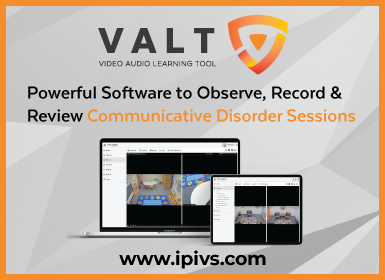
ANCDS does not endorse specific companies or products.
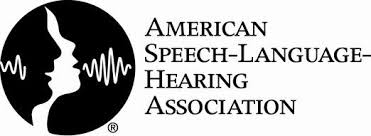
ASHA Announcements
Practice
National NSSLHA’s call for student leaders is now open!
National NSSLHA offers its members more than 100 opportunities to lead, amplify their voices and the voices of CSD students, and help shape NSSLHA’s impact on a regional and national level.
Applications are now open for the following student leadership positions:
-
Executive Council (EC) – six open positions for the 2023–2025 term
-
Student State Officers (SSOs) – 1-year term
-
Inclusion, Diversity, Equity, and Action (IDEA) Work Group – 1-year term
Learn more. Application deadline: April 28, 2023
------------------------------------------------------------------------------------------
New Evidence Map: Written Language Disorders (Adults) is a new evidence map topic offering free research summaries on assessment, treatment, and service delivery for adults with reading or writing disorders. Find the clinical information you need on this population or explore one of the other 50 clinical topics for the latest synthesized research at apps.asha.org/EvidenceMaps.
------------------------------------------------------------------------------------------
Career Transitions Mentoring: Enrollment for the 2023 cohort of ASHA’s Career Transitions Mentorship Program (CTMP) opens April 10-28 for experienced professionals in new settings. Consider lending your experience and expertise as a mentor, or if you’re getting settled into a new position consider seeking a mentor to help with this adjustment.
------------------------------------------------------------------------------------------
ASHA’s Special Collection on Culturally Responsive Teaching and Learning (CRTL)
ASHA developed this CRTL Special Collection to support a culturally responsive approach to academic, clinical, and research education in communication sciences and disorders. This special collection reflects a curation of ASHA and other evidence-informed resources for educators, clinicians, and researchers to create high-quality, culturally relevant, and responsive learning experiences for their students and mentees. This special collection will be expanded over time to include additional and newly published resources.
-----------------------------------------------------------------------------------------
Virtual May 2023 IPEC Institute
Interprofessional Education: Building a Framework for Collaboration
The May 23-25, 2023, IPEC Institute is being held virtually. This 2023 Institute is returning to the popular theme of building interprofessional education for collaborative practice (IPECP). Institute attendees will spend significant time planning, building, designing, assessing, and acting on their IPECP goals and projects, as well as communicating effectively about IPECP.
The IPEC Institute(s) are open to attendance by both interprofessional teams and individual participants. ASHA members are eligible for a registration stipend.
------------------------------------------------------------------------------------------
AJSLP Special Issue: Select Papers From the Third International Cognitive-Communication Disorders
Last year, hundreds of researchers, clinicians, and students gathered to share the latest research on cognitive communication and social disorders after traumatic brain injury (TBI). Now, Special Issue Editor, Margaret Lehman Blake is bringing expertise from the 3rd International Cognitive-Communication Disorders Conference (ICCDC) to readers of AJSLP. Check out summaries of these 10 papers here.
Aphasia Resources
Aphasia Access has produced an interactive eLearning course, Person-Centered Care: The Life Participation Approach to Aphasia Knowledge Course. The online course consists of 8 self-paced modules and is available for 2.5 ASHA CE hours. Upon completion of this course, users will earn a clickable eBadge which can be displayed in their email signature line and LinkedIn profile for 5 years. For more information, go to https://www.aphasiaaccess.org/knowledgebadge/
The content team from Aphasia Access who developed this course includes the following ANCDS members: Melinda Corwin, Katarina Haley, Brooke Hallowell, Jacqueline Laures-Gore, Marjorie Nicholas, and Nina Simmons-Mackie.
As a vital component of the mission of the National Aphasia Association (NAA) to promote research that aims to improve the lives of people with aphasia, a research portal was created to allow researchers to post subjects for their studies. By completing an online form with the necessary information, your study can be made available to a community of approximately 20,000 families living with aphasia who subscribe to the NAA newsletter.
Upcoming Conferences
Title: Trans Affirming Care and Practices
Date: April 18, 2023, 12-2 pm EDT (11 am-1 pm CDT)
Location: Virtual meeting (on Zoom)
Registration: https://catalog.pesi.com/item/inhouse-trans-affirming-care-practices-113317
Title: 52nd Clinical Aphasiology Conference
Date: Tuesday, May 30 – Saturday, June 3, 2023
Location: Atlantic City, NJ (in-person & virtual registration available)
Registration: https://web.cvent.com/event/1c7a1b19-191b-4bf9-b169-9f068f1c9e95/summary
Title: ANCDS 2023 Annual Scientific and Business Meeting
Date: Wednesday, November 15, 2023
Location: Boston, MA
Topic: Supporting Mental Health in Neurogenic Communication Disorders
Member Accomplishments
Building a Spanish-speaking Aphasia Community in New Jersey - The online "Entre Amigos" (Among Friends) Aphasia Support Group for Spanish-speaking persons with aphasia in New Jersey and their family and caregivers welcomes new members. For information, contact Jose G. Centeno, Ph.D., CCC-SLP, [email protected].
Heather Clark, Ph.D., BC-ANCDS, was promoted to Professor of Speech Pathology at the Mayo Clinic School of Medicine.
Special issue on "Stakeholder-Engaged Research: Examples from Aphasia", Topics in Language Disorders, 2023, 43 (1), Jan/Mar. Issue editor: Jackie Hinckley, Editor: Sarah Wallace.
Therese M. O'Neil-Pirozzi, Sc.D., was recently named an ASHA Fellow.
Whitney Postman, Ph.D., CCC-SLP, was recognized as an "ASHA Innovator" by ASHA's President, Bob Augustine.
Adele S. Raade, Ph.D., CCC-SLP, BC-ANCDS, (Adjunct Faculty, Eastern New Mexico University) graduated from ASHA’s Leadership Development Program with a project involving legislative advocacy.
Meghan C. Savage, Ph.D., CCC-SLP, was elected as a Distinguished Fellow of the National Academies of Practice in Speech-Language Pathology.
Rene Utianski, Ph.D., CCC-SLP, BC-ANCDS, was promoted to Associate Professor of Neurology at the Mayo Clinic School of Medicine. Dr. Utianski holds an academic appointment as an Associate Professor of Speech Pathology as well.
Member Publications:
Centeno, J. G., Obler, L. K., Collins, L., Wallace, G., Fleming, V., & Guendouzi, J. (In press). Focusing our attention on socially-responsive professional education to serve ethnogeriatric populations with neurogenic communication disorders in the United States. American Journal of Speech-Language Pathology.
Centeno, J. G., & Davidson, B. (2022). Managing post-stroke aphasia in underserved or unserved multiethnic-multilingual populations. In S. Levey & P. Enderby (Eds.), Addressing communication disorders in unserved and underserved populations (pp. 65-72). J&R Press. (Open Access: www.ialpasoc.info/publication/).
Davis, A. S. (2023). Eliminating racial bias and challenges for Black athletes with a sports-related concussion: The role of SLP clinicians and researchers. Perspectives of the ASHA Special Interest Groups, 1-12. https://doi.org/10.1044/2022_PERSP-21-00281.
Douglas, N., Hinckley, J. J., Grandbois, K., Schliep, M., Wonkka, A., Oshita, J., & Feuerstein, J. (2023). How the Power Differential between Clinicians and Researchers Contributes to the Research to Practice Gap. American Journal of Speech-Language Pathology, 32, 803-810.
Duffy, J.R., Martin, P.R., Clark, H.M., Utianski, R.L., Strand, E.A., Whitwell, J.L., and Josephs, K.A. (2023). An update on the Validity, Reliability, and Utility of the Apraxia of Speech Rating Scale. American Journal of Speech-Language Pathology. DOI: 10.1044/2022_AJSLP-22-00148.
Robinson, C.G., Duffy, J.R., Clark, H.M., Utianski, R.L., Machulda, M.M., Botha, H., Singh, N., Pham, N.T.T., Ertekin-Taner, N., Dickson, D.W., Lowe, V.J., Whitwell, J.L., and Josephs, K.A. (2023). Clinicopathological associations of hemispheric dominance in primary progressive apraxia of speech. European Journal of Neurology. DOI: 10.1111/ene.15764.
Sintini, I., Duffy, J.R., Clark, H.M., Utianski, R.L., Botha, H., Machulda, M.M., Senjem, M.L., Strand, E.A., Schwarz, C.G., Lowe, V.J., Jack, C.R., Josephs, K.A., and Whitwell, J.L. (2022). Functional connectivity to the premotor cortex maps onto longitudinal brain neurodegeneration in progressive apraxia of speech. Neurobiology of Aging, 120, 105-116. DOI: 10.1016/j.neurobiolaging.2022.08.013.
Naeser, M.A., Martin, P.I., Ho, M.D., Krengel, M.H., Bogdanova, Y., Knight, J.A., Hamblin, M.R., Fedoruk, A., Poole, L.G., Cheng, C.H., Koo, B.B. Transcranial Photobiomodulation Treatment: Significant Improvements in four Ex-Football Players with Possible Chronic Traumatic Encephalopathy. Journal of Alzheimer’s Disease Reports (JADR) 2023, 7(1), 77–105. DOI 10.3233/ADR-220022.
Naeser, M.A., Martin, P.I., Hamblin, M.R., Ho, M.D., Koo, B.B. Increased Functional Connectivity Within Intrinsic Neural Networks in Chronic Stroke Following Treatment with Red/Near-Infrared Transcranial Photobiomodulation: Case Series with Improved Naming in Aphasia. National Library of Medicine. PMID: 31621498. DOI: 10.1089/photob.2019.4630.
Riccardi, J. S. (2022). A Scoping Review of Auditory Dysfunction after Childhood Traumatic Brain Injury. American Journal of Audiology.
Strong, K. A., Douglas, N. F., Johnson, R., Silverman, M., Azios, J. H., & Archer, B. (2023, February). Stakeholder-Engaged Research: What Our Team Friendship and Aphasia Team Learned about Processes and Pitfalls. Topics in Language Disorders. https://doi.org/10.1097/TLD.0000000000000302.
Tilton-Bolowsky, V., van der Stelt, C., DeMarco, A., Laks, A., Dobbins, C., Snider, S. F., Turkeltaub, P. E., & Vallila-Rohter, S. (2023). Evaluating circumlocution in naming as a predictor of communicative informativeness and efficiency in discourse. Aphasiology 37(3). https://doi.org/10.1080/02687038.2023.2183076.
Utianski, R.L., Martin, P.R., Clark, H.M., Duffy, J.R., Ali, F., Botha, H., Whitwell, J.L., and Josephs, K.A. (2023). Assessing Patients and Care Partner Ratings of Communication Limitations in Progressive Motor Speech Disorders. American Journal of Speech-Language Pathology. DOI: 10.1044/2022_AJSLP-22-00140.
Utianski, R.L., Duffy, J.R., Clark, H.M., Stierwalt, J.A.G., Botha, H., Ali, F., and Josephs, K.A. (2023). Rate Modulation Abilities in Acquired Motor Speech Disorders. Journal of Speech-Language-Hearing Research. DOI: 10.1044/2022_JSLHR-22-00286.
|